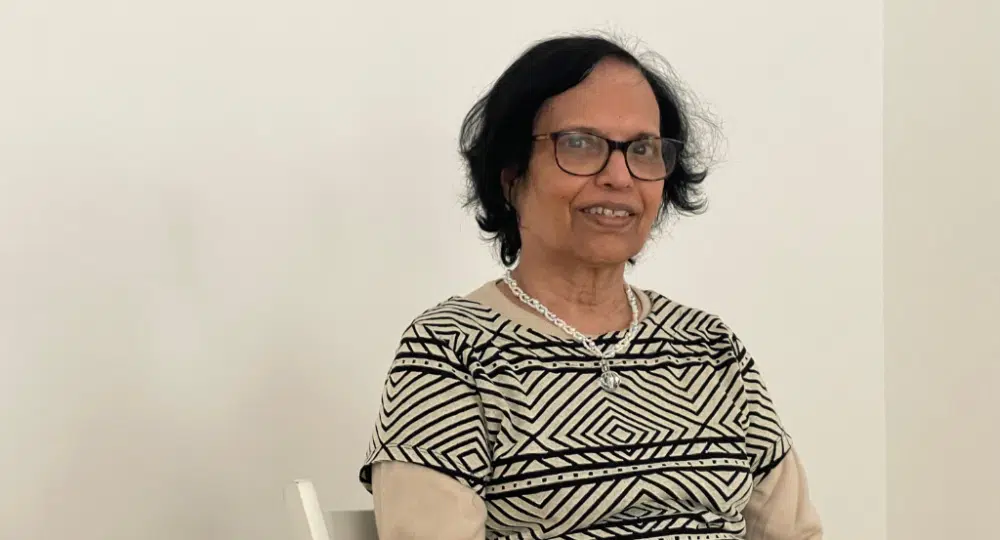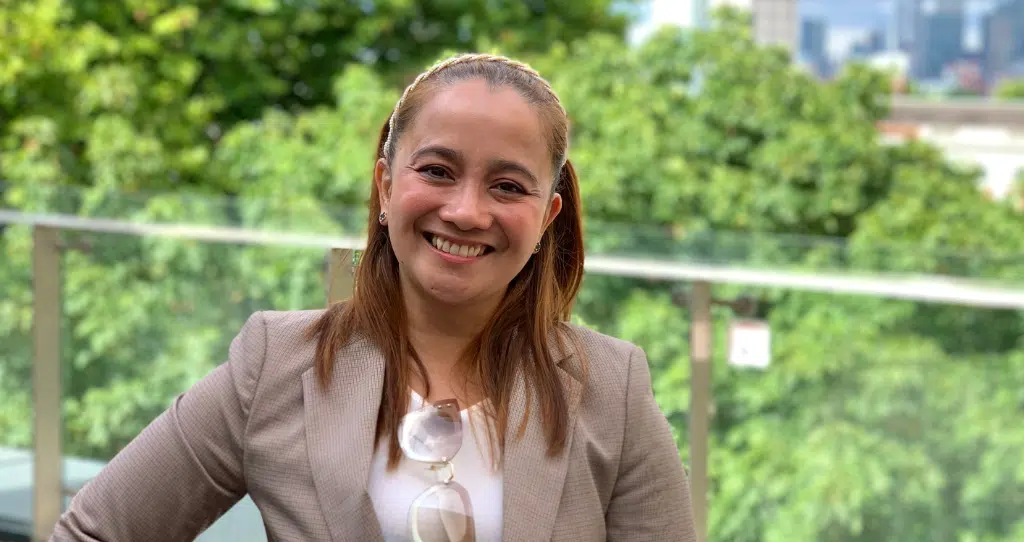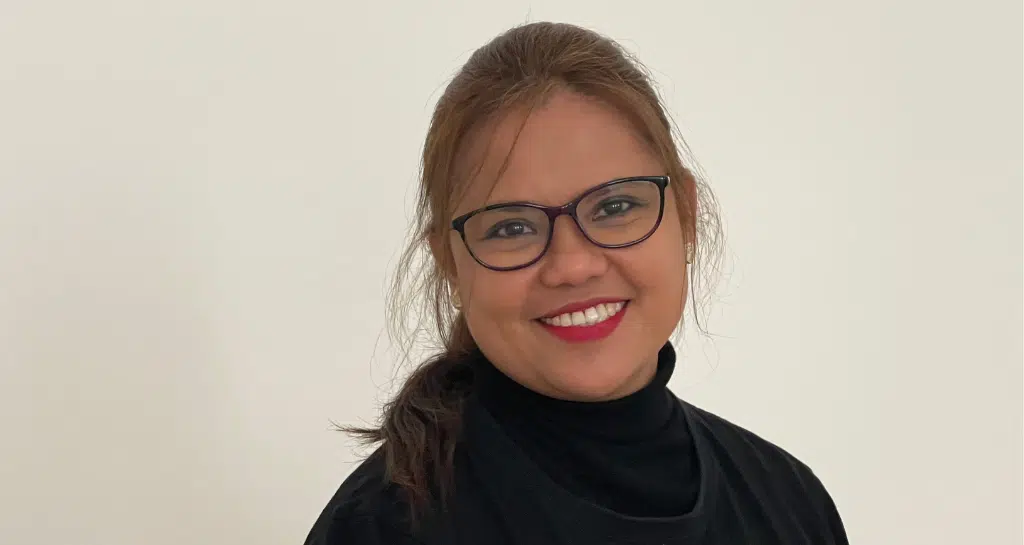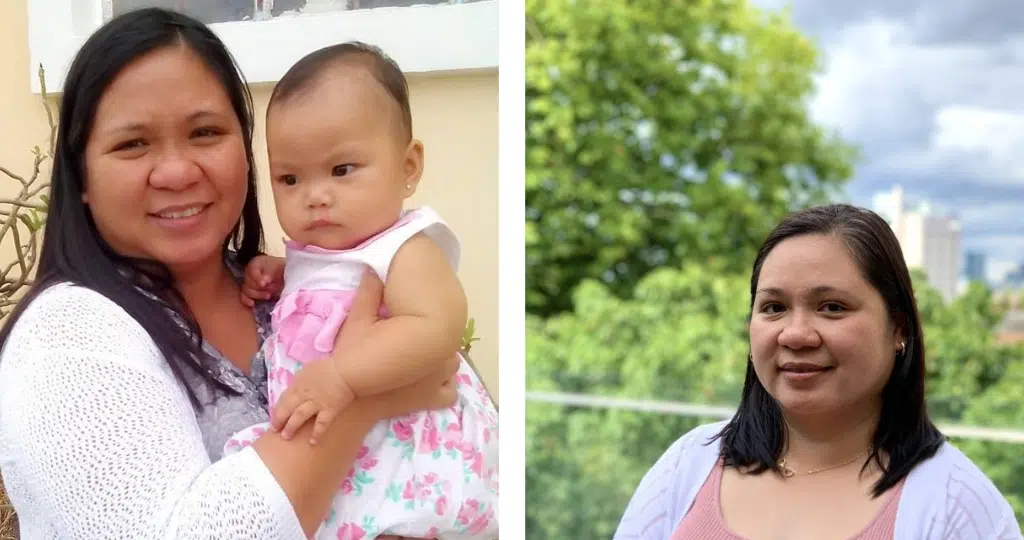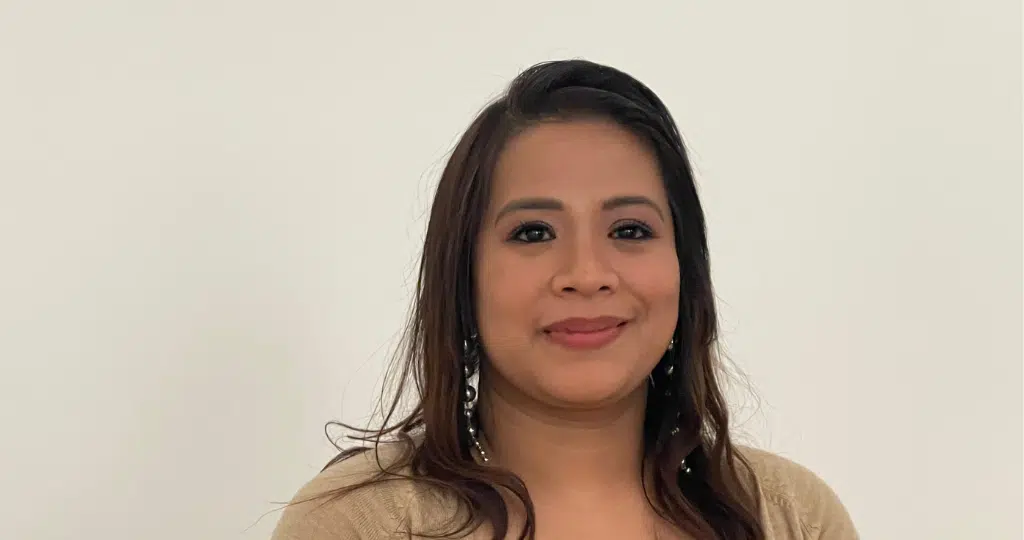The Unheard Voices of Migrant Domestic Workers
Posted by Julia Rampen on March 21, 2023We collaborated with Sounddelivery Media and the Voice of Domestic Workers to share the often-unheard stories of migrant domestic workers in the UK.

Migrant domestic workers provide indispensable services to the countries where they go, taking care of other people’s homes, children, and family members while being away from their own.
In our Unheard Voices project, we heard from six participants of the Future Voices spokesperson programme by The Voice of Domestic Workers and Sounddelivery Media, which equips migrant domestic workers with the skills and confidence to share their experience.
They tell us how they had to leave their families because of economic instability, and work abroad to enable a bright future for their children, siblings, and loved ones back home.
Dotty Fernandez: ‘It was very painful to be separated from my son, but I had to because I wanted to provide him with a good education and a good future. But the price of my sacrifices was too hard to bear.’
To provide an education for her son, Dotty Fernandez worked as domestic worker for other families and was often separated from him.
‘I am Indian and now a British citizen. I came to the UK in 2006 and my job involved caring, cleaning, and childcare. It was very painful to be separated from my son, especially as a single mum, but I had to because I wanted to provide him with a good education and a good future. But the price of my sacrifices was too hard to bear. When I would take care of other people’s children, I would cry because it would make me think of him and how we were apart.
‘While working as a domestic worker, I was abused and treated like a slave. I was not given food, not allowed to use the dishwasher, not allowed to use the radiator. I’ve had a hard life, but I provided for my son and now, by God’s grace, I am settled.’
‘Today, I am living a simple life, but I am happy and at peace. I tell other domestic workers “Don’t hide yourself. Stand up and fight.” But I know it’s not easy for some of them, so I hope to be a voice for them.’
Read her full story here.
Wendy Nova: ‘My heart is full of sadness when I need to celebrate my employer’s family occasions, more than my own family’s.’
When Wendy’s salary was not enough to support her children, she decided to work overseas as a domestic worker. Now she works as a carer and housekeeper and is a leader of The Voice of Domestic Worker’s Media & Communication Working Group.
‘My salary was not enough to sustain my children’s needs and education and to have savings for unpredictable circumstances. Choosing to work abroad was not easy but I knew that it would benefit both myself personally and my family.
‘There is something to be said for finding joy wherever you are. It’s the same when you are taking care of other people’s families. I need to look after and love them as my own. My heart is full of sadness when I need to celebrate their occasions, more than my family’s.
‘Migrant domestic workers are among the most vulnerable workers at risk of abuse and exploitation that often happens behind closed doors, making it difficult for us to seek help, and for people on the outside to see what is happening. Domestic work is the fuel of the economy, and my domestic work is decent work. I could provide a decent living and good future for my children.’
Watch her share her experiences here.
Mimi Jalmasco: ‘We care for the families that make up society.’
Mimi is a full-time nanny and housekeeper, and mother of three, from the Philippines. In the hope of enabling a bright future for her children free from poverty, she decided to work overseas as a domestic worker in the UAE.
‘I left my home country, not to depend on support from the government or any charities and organisations, but because I am strong, I can work. It is the very reason why I have sacrificed not seeing my children for many years now – to be able to provide for their needs and education. I want people to know that being an international domestic worker, leaving our family behind is not easy. We look after other people’s children when we can’t look after our own.’
‘I have been raising my voice to make the policies right for migrant domestic workers. I hope people and the government recognise the valuable contribution of migrant domestic workers as carers. Our economic contribution is visible because it is us domestic workers who allow other work sectors to be able to work.’
Read her full story here.
Jenny Abenoja: ‘My dream was to give her the best future, but in exchange I sacrificed my motherhood and her childhood.’
Jenny made the difficult decision to work abroad to support her daughter, who was only a baby when she left. She is now an active member of The Voice of Domestic Workers, advocating for the rights of migrant domestic workers.
‘Our life when I was young was so difficult. We struggled every day to work hard just to have a meal. Poverty was the main reason why my mum decided to go abroad to work as a domestic worker in Malaysia. Growing up there wasn’t a day that I didn’t ask my dad or my older siblings when our mum would be coming home.
‘I was employed right after I graduated, but the salary was not enough to feed my family. I left the Philippines and ventured abroad to try my luck and for money for my family’s future. I left my daughter just after her first birthday to go overseas.
‘She is six years old now and it’s been five years straight without seeing, holding and hugging her. I am glad that I can give her all that she wants and needs now financially and materially but what is missing is happiness from our mother and daughter bonding.’
Read her full story here and listen to her moving poem ‘A Poem to my Daughter.’
Demetrio Masupil: ‘I never for a moment wanted to forget my family and what I needed to do for them.’
Demetrio Masupil is part of The Voice of Domestic Workers Media & Communication Working Group. He left his home in the Philippines to work abroad as a domestic worker to support his siblings after their parents died.
‘My family’s entire world changed. I had many different jobs to help my family. Eventually, I realised that we were never going to be able to survive in life without earning more money. I had to leave my family and work abroad. The simple reality was that even if I could earn a little more money, it was worth the sacrifice.
‘I had hoped to return to see my family soon. I re-lived every happy memory I had of my home in my head, my siblings, my friends, and my parents.
‘I worked very hard, and it was very difficult to deal with all the different things my employer wanted. I had no days off at all for my personal life, not even breaks to spend the time talking to my family over a video call.
‘When I was granted leave to remain, it was such a relief to know that I can now make plans, work another job and at last be able to save and book a holiday to see my family!’
Read his full story here.
Marigold Balquen: ‘We left our home country out of love for our family and our domestic work requires care and love for the family we work with, but we also need to be loved.’
Marigold is a domestic worker and a spokesperson of The Voice Domestic Workers. She has been involved in rescuing fellow domestic workers who have fled abusive employers and finding safety for them.
‘My employer exploited me. I worked long hours every day. I didn’t have proper accommodation; my bed was under the dining table on the floor, so it was freezing cold. The food I ate was leftover food and if there was none, there was nothing to eat.
‘I made up my mind and decided to escape because I couldn’t bear it anymore. I didn’t have my passport because my employer had confiscated it. I became undocumented which was very difficult because I couldn’t work. Every time I saw police in the street my body would shake. But why is escaping from abusive employment a crime? It was so hard to be treated like a criminal when the only thing I wanted is to work so I could provide for my family.’
Read her full story here.

